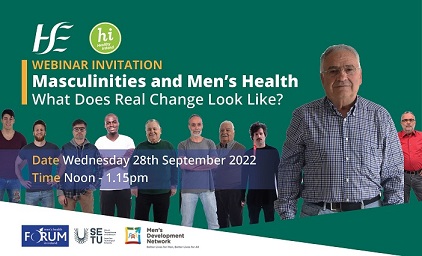Men and Cancer: Saving Lives, Reducing Suffering
If you weren't able to attend the Global Action on Men's Health webinar on 'Men and Cancer: Saving Lives, Reducing Suffering' held in October 2022, you can now watch a recording online at: https://youtu.be/JgOMTwDfLhg

